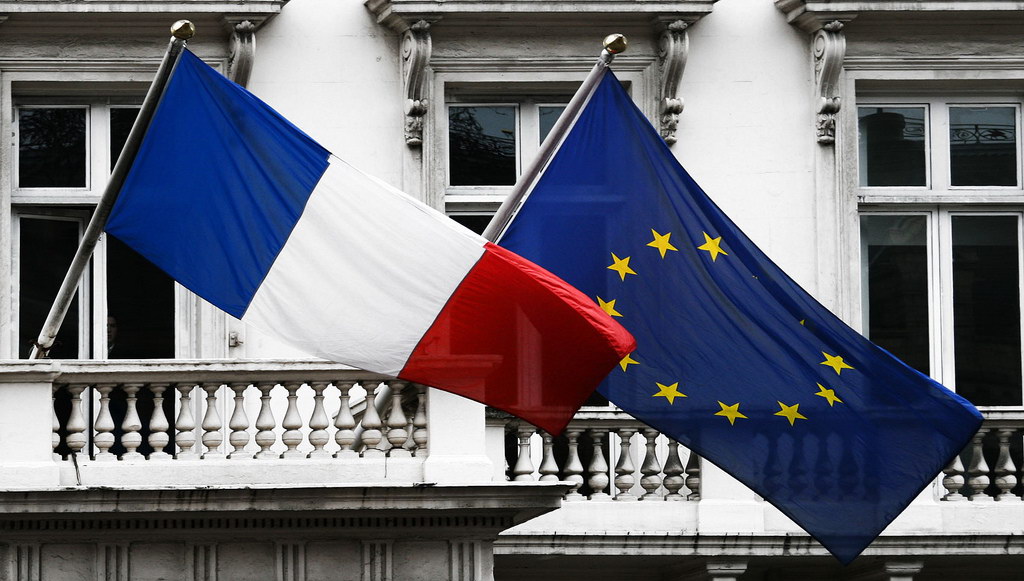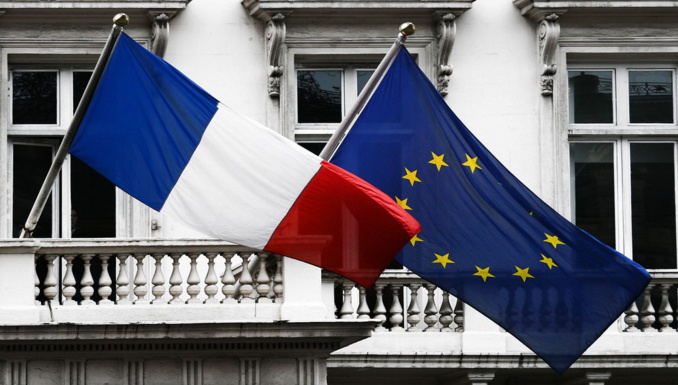The future of France in the European Union, the large number of "pro-Russian" candidates, Fillon's corruption cases and the threatening growth of nationalism - these are the main topics that foreign commentators are most concerned with in the French election campaign. French elections are worrisome, but on the whole they confirm the trends that have already manifested themselves in other European countries, say experts interviewed by the publication.
Europe regards current candidates less enthusiastic than François Hollande in 2012. Five years ago, the European lefties hoped that the socialists who won in France would have influenced Brussels’ policy of tight budgetary economy and would support the countries of Southern Europe incapable of paying an endlessly growing debt on loans. However, Hollande’s presidency became a five-year disappointment.
The southern European leftists no longer see potential allies among the current favorites of the presidential elections in France. "There is a great disappointment, and no one already has the hopes of 2012", says political scientist Filippa Chatzistavrou of the University of Athens. Similar sentiments are brewing in Italy, where more attention is now being paid to the German pre-election campaign, says Italian researcher Alfio Mastropaolo.
The leftist camp of Germany was divided in its preferences regarding candidates in the French elections. The current leader of the German Social Democrats supports Benoît Hamon, but his predecessor as Head of the SPD, Sigmar Gabriel, speaks in favor of Macron.
In Romania, the most attention was drawn to Jean-Luc Mélenchon. His communist past and approval of Putin's policy are of much greater concern to Romanians than the rest of the programme. According to this criterion, the Romanian media attribute him to the "extremist camp" together with Marine Le Pen., François Fillon discussed the attitude towards Putin in the same context. French elections are regarded in the same way in Poland and other countries of Central Europe, where the issue of positioning towards Moscow is much more acute than in the west of Europe.
Growing nationalistic sentiment in France is a common concern for the whole of Europe. In Italy, where the extreme right "League of the North" came to power in two regions of the country, they assure that it is simply inconceivable that the nationalists get any significant result in the national elections. In Greece, the neo-Nazi "Golden Dawn" never received more than 7% in the elections. And even the go vernment of the Polish national conservatives, maintaining ambiguous ties with the National Front, fears Le Pen’s victory, saying it would collapse the united Europe.
Finally, another indicative trend is the decline in the popularity of traditional leftists. It is already certain that this will be one of the worst elections for the Socialist Party. "Now the Social Democratic parties have greatly weakened in all of Europe, they do not have a sufficiently clear project and the will to transform", explains the Greek researcher Gerassimos Moschonas, who compared results in the elections of 13 European Social Democratic parties, beginning in the 1950s. He came to a conclusion that they lost an average of 35% of their electorate during this period.
source: mediapart.fr
Europe regards current candidates less enthusiastic than François Hollande in 2012. Five years ago, the European lefties hoped that the socialists who won in France would have influenced Brussels’ policy of tight budgetary economy and would support the countries of Southern Europe incapable of paying an endlessly growing debt on loans. However, Hollande’s presidency became a five-year disappointment.
The southern European leftists no longer see potential allies among the current favorites of the presidential elections in France. "There is a great disappointment, and no one already has the hopes of 2012", says political scientist Filippa Chatzistavrou of the University of Athens. Similar sentiments are brewing in Italy, where more attention is now being paid to the German pre-election campaign, says Italian researcher Alfio Mastropaolo.
The leftist camp of Germany was divided in its preferences regarding candidates in the French elections. The current leader of the German Social Democrats supports Benoît Hamon, but his predecessor as Head of the SPD, Sigmar Gabriel, speaks in favor of Macron.
In Romania, the most attention was drawn to Jean-Luc Mélenchon. His communist past and approval of Putin's policy are of much greater concern to Romanians than the rest of the programme. According to this criterion, the Romanian media attribute him to the "extremist camp" together with Marine Le Pen., François Fillon discussed the attitude towards Putin in the same context. French elections are regarded in the same way in Poland and other countries of Central Europe, where the issue of positioning towards Moscow is much more acute than in the west of Europe.
Growing nationalistic sentiment in France is a common concern for the whole of Europe. In Italy, where the extreme right "League of the North" came to power in two regions of the country, they assure that it is simply inconceivable that the nationalists get any significant result in the national elections. In Greece, the neo-Nazi "Golden Dawn" never received more than 7% in the elections. And even the go vernment of the Polish national conservatives, maintaining ambiguous ties with the National Front, fears Le Pen’s victory, saying it would collapse the united Europe.
Finally, another indicative trend is the decline in the popularity of traditional leftists. It is already certain that this will be one of the worst elections for the Socialist Party. "Now the Social Democratic parties have greatly weakened in all of Europe, they do not have a sufficiently clear project and the will to transform", explains the Greek researcher Gerassimos Moschonas, who compared results in the elections of 13 European Social Democratic parties, beginning in the 1950s. He came to a conclusion that they lost an average of 35% of their electorate during this period.
source: mediapart.fr



















